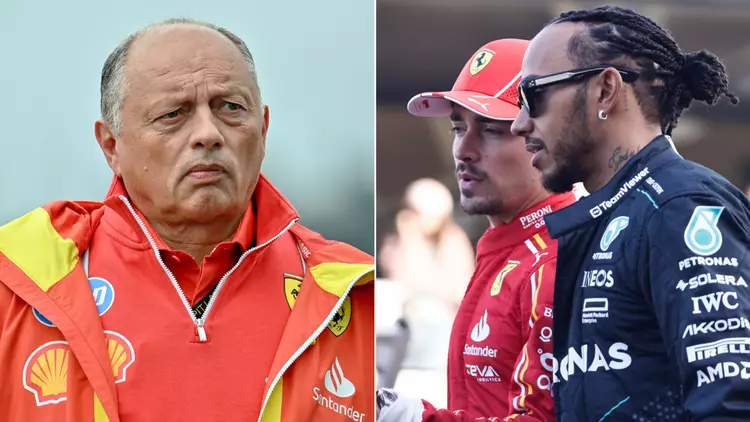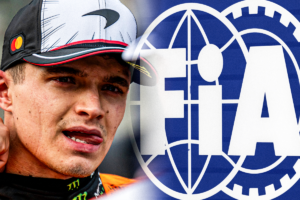Breaking: Ferrari President “Regrets” Lewis Hamilton Decision following…read more

Ferrari President “Regrets” Lewis Hamilton Decision following…read more
Toto Wolff, the team principal of Mercedes, has recently addressed the ongoing decline in Lewis Hamilton’s performance and the reasoning behind the team’s decision to offer him a one-year contract extension. Wolff explained that the short-term nature of Hamilton’s new contract was a strategic decision made by both Hamilton and the team, allowing them to evaluate the situation on a year-to-year basis. This approach, according to Wolff, gives both parties flexibility in assessing the future direction of their collaboration, without being tied down to a long-term commitment at a time when Hamilton’s performance has been subject to more scrutiny.
In his comments, Wolff acknowledged that the decline of elite athletes is an inevitable reality, particularly in high-performance sports like Formula 1, where mental and physical sharpness are paramount. He pointed out that cognitive abilities, such as focus and decision-making, are crucial for a driver’s success, and that even the best drivers have a limited “shelf life” in the sport. This was an important point for Wolff, who emphasized that every driver, no matter how talented, eventually experiences a drop-off in their abilities. While Wolff didn’t directly criticize Hamilton, his words alluded to the natural aging process that impacts all athletes, even those at the pinnacle of their careers like the seven-time world champion.
Wolff went on to share that he felt a certain sense of relief once Hamilton’s decision to part ways with Mercedes had been confirmed. This decision, he explained, would ultimately spare the team from having to confront the uncomfortable situation of telling one of F1’s most iconic drivers that they no longer wished to retain his services. The team principal admitted that this outcome made things easier for Mercedes, as it avoided the difficult moment when they would have had to inform Hamilton, who has been central to their success over the past decade, that his time with the team was coming to an end.
Looking beyond Hamilton’s future at Mercedes, Wolff also discussed the need for F1 teams to prepare for the transition to the next generation of drivers. Drawing a parallel with top football managers such as Sir Alex Ferguson and Pep Guardiola, Wolff noted that successful leaders in sports have always been able to foresee the eventual decline of their star players and take proactive steps to introduce new talent into their squads. Just as football clubs invest in young, promising players to ensure the future of their teams, F1 teams like Mercedes must start looking ahead to secure a strong lineup of drivers for the post-Hamilton era. Wolff’s comments reflected the ongoing efforts at Mercedes to bring in fresh talent, which is critical for the team’s continued success.
This focus on succession planning comes at a time when Hamilton’s future in the sport remains uncertain. While the British driver’s immense talent and legacy remain undisputed, his recent performances have raised questions about his ability to regain the dominance that once defined his career. In particular, his struggles with adapting to the changing dynamics of F1 have become more apparent, and despite his undeniable achievements, it is unclear whether he will be able to return to the top level of competition. Some observers have speculated that Hamilton’s potential move to Ferrari could mark the final chapter of his career at the highest level of motorsport. While a switch to Ferrari could potentially provide a fresh start and a renewed sense of motivation for Hamilton, the success of such a move is far from guaranteed. Should his time at Ferrari not reignite his form, it could signal the end of an era in F1, with the sport transitioning to a new generation of drivers who will define the future of racing.
Wolff’s comments about Hamilton’s decline also suggest that Mercedes is already preparing for a future without the driver who has been synonymous with the team’s success for over a decade. The team has been actively nurturing young drivers, and it is clear that Wolff and Mercedes are taking a long-term view of their operations. Preparing for life after Hamilton is a necessity for any top team in F1, as the sport evolves rapidly, and the next wave of talent is always on the horizon.
Ultimately, whether Hamilton can reignite his career and find new success at Ferrari remains to be seen. However, his continued struggles over the past seasons suggest that the era of dominance he once enjoyed may be coming to a close. Wolff’s reflections indicate that Mercedes, along with the broader F1 community, is already beginning to prepare for this shift, with the focus now on securing the future success of the team. It’s clear that the next few years in Formula 1 will be a period of significant change, as the sport looks to usher in a new generation of drivers to take the reins from the legends of the past. Whether Hamilton can regain his former glory or whether his legacy will be defined by his past achievements remains to be seen, but one thing is certain: the sport is preparing for a new era.







